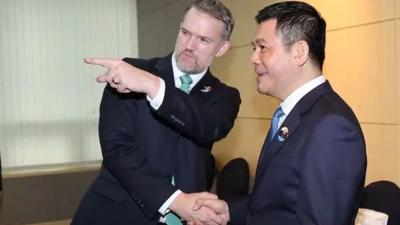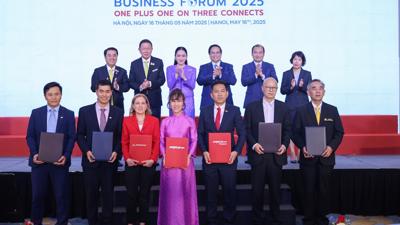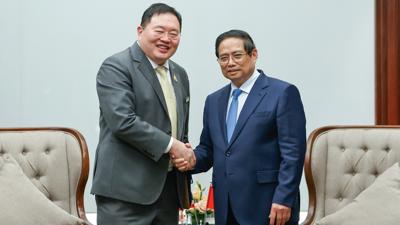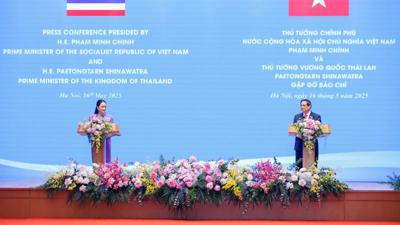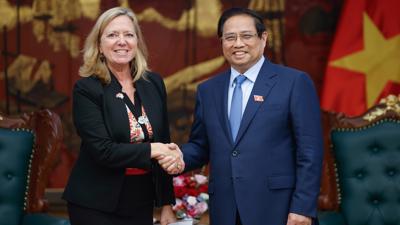More favorable conditions for overseas Vietnamese
The Land Law 2024 (amended) allows overseas Vietnamese to own real estate in Vietnam.
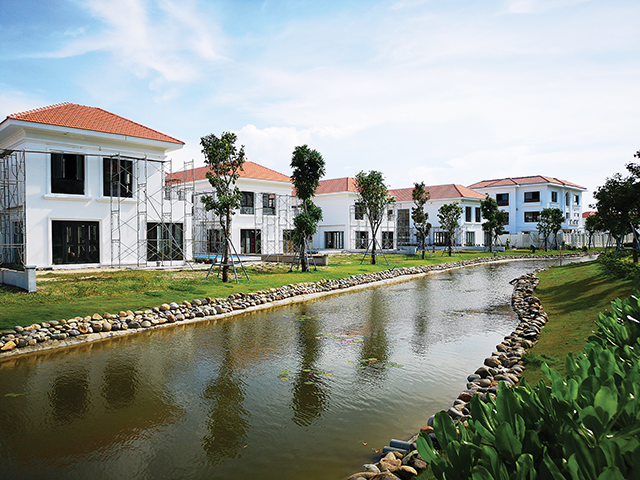
Under the Land Law 2024 (amended) which is expected to come into effect earlier, from July 1 this year, overseas Vietnamese are allowed to have ownership of real estate and to do real estate business in Vietnam. This legal framework will create favorable conditions for them to invest in domestic real estate, thus contributing to the development of the real estate market as anticipated capital flows may increase and become more transparent.
Article 4 on "Users of Land" stipulates that individuals or organizations, including both domestic individuals and Vietnamese citizens residing abroad or people of Vietnamese origin living abroad, using land to be allocated or leased by the State will be recognized as having a legitimate right to land use. These individuals and organizations, if having been using land in a stable manner and meeting the conditions required for being granted a land use certificate and property ownership certificate associated with the land, will also be recognized as having a legitimate right to land use.
The new legal framework has clearly created favorable conditions for overseas Vietnamese to invest in the real estate sector in Vietnam. At the same time, they will be allowed to participate in real estate transactions, thus attracting remittances – a source of foreign capital that is increasingly important for Vietnam alongside FDI capital.
According to the State Committee for Overseas Vietnamese Affairs, there have been now approximately six million Vietnamese living and working in over 130 countries and territories worldwide, with about 80 per cent residing in developed nations. Additionally, data from the Ministry of Labor, Invalids, and Social Affairs reveals that there are currently 650,000 Vietnamese workers working in 40 countries and territories globally. These individuals represent a significant untapped potential market for the domestic real estate industry.
Statistics from the Vietnam Real Estate Brokers Association (VARS) show that Vietnam has consistently ranked among the top ten countries with the largest amount of remittances worldwide for the past decade and the top three in the Asia-Pacific. From 1993 to 2022, a total of over $190 billion was sent to Vietnam, almost equal to the FDI capital disbursed during the same period. In 2023 alone, approximately $16 billion worth of remittances flowed into the country, representing a 32% increase compared to the previous year. It is estimated that each year, about 25% of remittances are invested in the real estate market.
Therefore, "The amendment of the Land Law is a perspective that aligns with international trends and has positive impacts. The capital flow from overseas Vietnamese will serve as support for the real estate market in the future, especially given the context of many land companies facing capital shortages," said Mr. Nguyen Van Dinh, President of the VARS.
At a recent event, Ms. Nguyen Viet Trieu, President of the Federation of Vietnamese Associations in Europe, shared that in the past, overseas Vietnamese had to rely on family members in Vietnam to purchase real estate, due to concerns about complicated procedures. However, the new regulations allow them to own property in the country. This is a significant legal step that favors the lives and businesses of the overseas Vietnamese.
According to Ms. Trieu, many Vietnamese people living abroad have reached retirement age and they wish to return to Vietnam to live. Meanwhile, some overseas Vietnamese investors also want to invest in the domestic real estate market. Therefore, the land access policy in the Land Law 2024 meets the needs of overseas Vietnamese better, she said, adding that it strengthens confidence and optimism among overseas Vietnamese, thus encouraging them to send remittances and investment capital to their home country, and opening up economic and social development resources for Vietnam.
According to a representative from the KIS Securities Corporation Vietnam, overseas Vietnamese always wish to send money back home to support their relatives in Vietnam, despite economic difficulties. However, remittances sent to Vietnam are not only for supporting family members but also for investment and business activities, including real estate. This is because Vietnam has a stable political environment, a strong macroeconomic recovery, and a fast-growing GDP. Furthermore, the legal system is continuously being improved, which explains why overseas Vietnamese send money to engage in business activities and contribute to the economic recovery in Vietnam.
According to Mr. Dinh, currently, the high cost of housing in some countries and strict immigration regulations in certain nations have led to high demand for homeownership in Vietnam.
To attract more remittances, representatives from VARS proposed that government agencies need to invest in improving transportation and telecommunications infrastructure, as well as other public services. Additionally, tax incentive policies such as reducing or exempting taxes for overseas Vietnamese investing in real estate should be applied. Particularly, it is necessary to ensure a transparent, understandable information system and legal framework related to real estate, protecting the rights and interests of investors including overseas Vietnamese.


